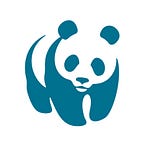Celebrating our newest human right
On Human Rights Day, we ask what it means to have a clean, healthy and sustainable environment recognized as a human right, particularly for Africa’s vulnerable coastal communities.
Congratulations. You are the bearer of a newly recognized human right. In October this year, the Human Rights Council recognized that having a clean, healthy and sustainable environment is a human right.
What does this right mean to the hundreds of millions of African coastal people whose cultural identity, economies and food security are interwoven with the coastal ecosystems they depend on? To the 12.3 million people employed in African fisheries and aquaculture, whose work feeds millions more? It means they have greater standing to demand economic, social and environmental policies that uphold their rights; WWF aims to help make that case until this right is a reality.
No doubt, we have work to do. Coastal rights continue to be challenged by competing uses and increasing users. You may have heard the expression “land grab,” but the seizing or appropriation of resources isn’t limited to terra firma. Evidence of wide-scale “ocean grabbing” is growing, as previously public or community-held ocean spaces and resources are reallocated, enclosed and privatized.
On the African coast, projects such as port development and oil and gas infrastructure have led to the displacement of fishing communities. Given historical legacies of colonialism and the “resource curse” weighing on marginalized communities across Africa, talk of expanding industrialized fishing or starting deep-sea mining should trigger loud alarms. Already, distant water fleets are overfishing African waters, exploiting the limited domestic or regional capacity to monitor the activities of these trawlers and enforce the law.
If policymakers set fulfillment of the right to a healthy environment as a policy goal, they would prioritize protection and restoration of the coastal ecosystems that underpin economic development and food security. In fact, fulfillment of that one right could kick-off a virtuous cycle of prosperity, resilience and opportunity. But it won’t happen by accident; targeted policies and investments are needed to ensure rights are secured and resilient economic development goes hand-in-hand with coastal protection.
Better, faster
WWF is proud to have supported coastal communities in securing their rights to resources and improving their management of those resources. Communities in Tanzania, Kenya, Madagascar and Mozambique closed fisheries of octopus, a fast growing species. After the pause, which allowed the octopus to mature and reproduce, the communities saw massive increases in their catch and revenue during reef openings. This year, a fishery in Tanzania was able to sell its harvest for a 100-fold profit on previous years. “This is my first time ever to get a lot of money from fishing activities since I started fishing in 2019,” said one fisher.
But there’s no one-size-fits-all solution. A rights-based approach to conservation asks us to consider the differences in power, access and vulnerabilities of different groups within a single community, and from community to community. That said, we can’t bend the curve on biodiversity loss and poverty by working one community at a time. We have to find ways to pick up the pace. Networks of coastal community-led organisations, nonprofits and governments need to come together to implement transformative approaches that will deliver large-scale, rights-based outcomes for both Africa’s people and the coastal ecosystems that support them.
Finding common ground
In the South West Indian Ocean region, governance frameworks vary from one country to the next, but common to every country is the recognition of a co-management approach to deliver rights of small-scale fishers. As the name suggests, it involves sharing the responsibility and authority between governments and communities.
While co-management has been customary of many coastal communities for thousands of years and a living example of participatory democracy, policies are only now being adopted nationally. In Madagascar for example, the fisheries department adopted regulations in 2017 that empowers communities to manage coastal resources. Compared to a top-down approach, co-management relies on transparency and trust, merging science and traditional knowledge. But it rewards the additional effort with benefits for both people and nature.
A co-management approach can be applied to economic activities like sustainable fishing, aquaculture and seaweed farming, as well as conservation and blue-carbon capture projects like protecting coral reefs, mangroves and seagrass. Coupled with microfinance tools, financial literacy and access to finance, such projects can help reduce communities’ dependency on dwindling inshore fisheries. Across the South West Indian Ocean region, 633 village banks have been established; on top of improving food security and livelihoods, they have created opportunities for women to engage in discussions about the use of community resources, have visible leadership roles and expanded community responsibilities.
The threat of ocean grabbing is real and imminent. It carries the risk of greater inequity, unfairness and exploitation of resources hidden under the guise of development. That threat must be met with a non-negotiable commitment to human rights — including the newly enshrined right to a clean, healthy and sustainable environment.
Contributing authors: Maria Honig, WWF Accelerating Coastal Community-led Conservation Initiative Leader; Umair Shahid, WWF Indian Ocean Tuna Manager; Sadaf Sutaria, WWF-Mozambique Tuna Policy Officer
